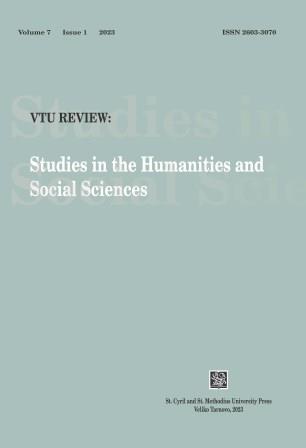Ushering the Vampire in British Literature? Southey’s Oriental-Gothic Tale 𝑇ℎ𝑎𝑙𝑎𝑏𝑎 𝑡ℎ𝑒 𝐷𝑒𝑠𝑡𝑟𝑜𝑦𝑒𝑟 (1801)
Ushering the Vampire in British Literature? Southey’s Oriental-Gothic Tale 𝑇ℎ𝑎𝑙𝑎𝑏𝑎 𝑡ℎ𝑒 𝐷𝑒𝑠𝑡𝑟𝑜𝑦𝑒𝑟 (1801)
Author(s): Galina DevedjievaSubject(s): Language and Literature Studies, Literary Texts, Poetry, Studies of Literature, British Literature
Published by: Великотърновски университет „Св. св. Кирил и Методий”
Keywords: Robert Southey; 𝑇ℎ𝑎𝑙𝑎𝑏𝑎; Oriental tale; arabesque; Oriental Gothic; Oneiza; female vampire; vampirism in southeastern Europe
Summary/Abstract: Robert Southey’s long narrative poem 𝑇ℎ𝑎𝑙𝑎𝑏𝑎 𝑡ℎ𝑒 𝐷𝑒𝑠𝑡𝑟𝑜𝑦𝑒𝑟 (1801) reflects a widespread cultural fascination with the Orient and the allure that it had for the Romantics in the eighteenth and early nineteenth centuries. It contains a host of exotic elements, among which magical rings and paradisiacal gardens, along with all sorts of Gothic paraphernalia, including severed limbs and, arguably, the first representation of vampirism in British literature: the protagonist’s doomed love, Oneiza, returns from the grave as a demon-possessed fiend in Book VIII. Gothic and Oriental tales are analysed in the first part of this article as fictional forms crucial to the formation of British subjectivity and nationality. A reading of the vampire episode is provided in the middle section, which tries to show how Southey’s use of Oriental material betrays an imperialist and nationalist stance and how his appropriation of conventional Gothic topoi contributes to the forging of the vampire as one of the most enduring figurations of monstrous otherness in British fiction. The fact that Southey based his female vampire on accounts of superstitious beliefs and practices in southeastern Europe is duly noted.
Journal: VTU Review: Studies in the Humanities and Social Sciences
- Issue Year: 7/2023
- Issue No: 1
- Page Range: 11-24
- Page Count: 14
- Language: English

